



Since the Nineties (at least), Mckenzie Wark has been writing colorful and critical texts that have raised the bar in countless conversations regarding networked culture, “weird global media events,” the philosophy of open source, game theory, and so on. He’s also been known for his active and ongoing engagement with a certain body of ideas associated with the Situationist International (S.I.)–a coalition of subversive thinkers and doers who coalesced in Europe around 1957 (to drift, drink, and détourn). Wark himself came of age in the (post-situationist) 1970s: a decade where, as he says, “everything turned to shit.”
…In spite of everything having already turned to shit, Wark kindly met with Brooklyn’s Montgomery Cantsin on the 16th of May, 2013, in Manhattan. Prior to a show and tell–of Wark’s 3D-printed Guy Debord Action Figures (“His action is smoking,” says Wark) and Cantsin’s metagraphic tattoo (from a design by Isidore Isou)–the two spoke briefly about philosophy, history, science, and technology. Wark was on his way to the U.K. where in addition to having an event at Furtherfield he’d also been booked for a speaking engagement for his new book (Spectacle of Disintegration–just published by Verso), where he’d be right alongside the Situationists Alice Becker-Ho and Jacqueline de Jong.

MONTGOMERY CANTSIN: According to Anselm Jappe, “technology levels a more telling critique of everyday life than does poetry, for it is able to challenge current everyday experience w/ realizable possibilities, not with mere reveries.” He also notes, though, that under existing conditions (of uneven development, etc.), technology “constitutes a new kind of alienation.” Your thoughts?
MCKENZIE WARK: First, we ought not necessarily think of the poetic and the technological as separate categories. They are always entangled with each other. The interesting moments in poetry–not always, but often–coincide with new technological affordances, new ways of communicating. I wouldn’t want to see those as either/or categories. (Poetry is a technology; technology is poetic.) It’s always worth looking for the breaks. When a technology is relatively new, no one usually knows what the fuck it’s for or what to do with it, and that’s kind of a moment to try to play with it and sort of elastically stretch out the boundaries of it and establish a beachhead for struggling around what it can be like and what you can do with it. At present though, we are entering more of a moment of consolidation with how technologies work. In the Eighties and Nineties there was this huge opening of spaces and possibility, and now an enclosure is returning.
MC: Facebook comes to mind here. Can a situationist perspective show us how to disentangle ourselves from that whole mess? Should we hope that there can be “situationist uses” of social media?
MW: Yeah Facebook wants to, in a sense, control historical time as people experience it. That’s what ‘timeline’ is. But there are always little affordances. Part of the legacy of thinking in the wake of the Situationists is that you have to understand what the tactical openings and gaps and spaces are that are available to you, and to in fact not see it as a sort of ‘expressive totality’ where everything is always and already saturated in advance with the totality of capital or spectacle. To some extent that is a correct diagnosis. But it’s also not the whole story. And that’s why, when one reads the Society of the Spectacle,[1] it is the second-to-last chapter that is the one that counts. The second-to-last chapter is about détournement, it’s about the way that you appropriate and use the whole of poetry and technology as always and already belonging to all of us. You act on that basis, self-consciously. That’s the struggle, that’s the strategy. And, to the extent that there’s a learned capacity to to struggle in and against things like Facebook, I say let’s credit the struggles of the Eighties and Nineties around free networked communicative cultures and practices. Those in fact originally started as an avant-garde (of thirty or so people); [such movements] seeded certain tendencies into the mainstream.
MC: If blanket surveillance of telecommunications is a given, if all our emails and texts are being monitored, I suppose one is forced to wonder, is there is any point in staying away from Facebook?
MW: As I’ve said elsewhere, it is the height of vanity to think that you are under surveillance. No one gives a rat’s ass about most of us. But yeah, we ought to just assume that data is being collected about all of our lives for possible future use. You can just kind of assume that. And so then [what’s called for] is a counter-tactic of a certain nuance and unreadability and opacity about everyday life–to not announce everything in advance, and to not be careless with language. To try pass silently in some things. You know, before the Situationist International was even constituted, the police arrived. And Guy Debord writes about this in a letter, I think to Gallizio. Reading his version of it, it looks like the way he avoided the police trying to proscribe them is, he pointed out “We haven’t even been constituted yet!.” So the S.I. as an organization was under surveillance before it even started! Even though the S.I. was a minor insignificant organization in its time–in the moment of its founding, it’s like half a dozen people–there was always a certain carefulness, an opaque quality. Not everything has to be said to just everyone. So, act on that basis.
MC: Can you say more about secrecy, or opacity? I wonder, what does Stewart Home (or Len Bracken) achieve by bringing up secret societies in the context of discussing the S.I.?
MW: Stewart Home is actually one of my favorite contemporary writers and his interest in the S.I. is in the context of an astonishingly broad knowledge of avant-garde art and literature, and the culture of his own city (London). As for the occult, I personally have no interest in the occult, but the idea of opaque social realms is something that Stewart has an interest in (and I do too). There’s a sense in which the S.I. at various stages is doing that. There’s a difference between the internal communication and the external one. And it’s useful to look at because it is so different from the spirit of our times where everybody is just tweeting to everybody every fuckin’ last thing they did. The idea that you can create this little circuit-breaker, this internal conversation that’s separate from the external one: it’s a kind of a useful valid space in which to operate. […] Not a secret society, but a discreet group. […] Interestingly, Stewart is extremely uninterested in the Debordian strands in the S.I., and to me he was a really important voice in moving away from seeing it as centered on Debord. And when I wrote Beach Beneath the Street,[2] his was one of the voices I was responding to. There I wanted to sort of synthesize the stuff about Debord with this anti-Debord strand of which Stewart’s a key representative–to put these two back together again. The second book, Spectacle of Disintegration, sort of does that as well. There’s like whole chapters on Sanguinetti and Vienet, and Vaneigem. And a lot of material on Debord’s films–with that I tried a lot more than I think Stewart ever would.
MC: Home claims that Debord’s films are sort of stuck in the avant-garde gesture–the whole “end of cinema” thing. But you show that Debord’s later work is actually not like that. It’s richer than that.
MW: It’s a valid point about his early films, though I think that they are defensible in other ways and there are resources you can get from looking at that stuff. I think it was really important for Stewart to say “No” though, because there was just so much repetition of this Debordian “specto-Situationist” stuff (as he calls it). He was right, it was boring. If you look at the people who were just imitating that: it was boring as all hell. (All they have to say to you, or to each other, is: “spectacle!” and “recuperator!” Its boring.) So, Stewart shuts that door and opens these other ones. And he’s doing a sort of détournement of that, into another space that’s much more Anglophone. Stewart draws this into a whole series of British and Anglophone traditions successfully.
MC: You note that that Simon Critchley views the Situationists through a sort of religious lens? To which of Critchley’s books are you referring here?
MW: Yes it’s in Infinitely Demanding.[3] One of Simon’s core propositions, and it’s an interesting one, is that “philosophy begins in disappointment.” There are two kinds: religious disappointment and political disappointment. He actually classifies Debord as almost a theologian of disappointment. (That’s my phrase, not his. But that’s how I’m reading what he does there.) So once you have a disappointment, then your consolation is philosophy as a high theory tradition. There’s also a low theory tradition though, and it begins in boredom with these discourses of disappointment. So, how does one–in an interstitial space outside of cultural and academic institutions–produce a critical language of the everyday itself, where what it’s going to do is write and think with extremely broad horizons? Well, the practice of the everyday will always fall short of that horizon. One is only disappointed though if one has a naive idea about thought’s ability to dominate life in the first place. The fact that you cannot practice what you can theorize: that is the very thing that makes both possible. So, it’s not a failure of praxis when your ideas and action don’t align. That is the praxis. The gap is the thing. You think that relation in its irreconcilability. Disappointment is just a moment in thought. And then one’s bored with that. You try it again, and in a sense you do not give up. As Asger Jorn says: “The avant garde never gives up!” That struggle of thought opens horizons which get foreclosed and then you open another one, so it’s kind of a tactic of reinvention.
MC: How can the S.I. assist us in addressing questions that are outside the realm of science, or maybe outside of the knowable?
MW: I think it was Andre Breton who said “Science is useful for the solution of many problems, all of them unfortunately of secondary interest.” (There’s a certain poetic hubris about that, perhaps even more evident in our time.) A scientific method isn’t going to deal with unclassifiable, undefinable problems–those are really more in the domain of a tactics. Where Debord is useful for that is in the way he thinks through Clausewitz. Clausewitz is one of his key figures. In Clausewitz there is a kind of continuum from pure unreflective action to rational strategic thought. And for him it’s kind of a hierarchical relationship where the state has a rational motive but the field commander is kind of responding in this kind of affective way, and troops are pure action. Strategy is in between, in a sense, mediating between reason and action. It also just happens to be fairly close to how Sartre thinks the situation as the space where consciousness and its other confront each other in a domain that’s not knowable in advance and that’s only discovered in the act. That’s why it was called the Situationist International, after Sartre. Debord borrows the word “situation” from Sartre, but more about the actual practice from Clausewitz. Clausewtiz doesn’t call it a situation, to him it is the friction and fog of war. I think Clausewitz is Debord’s main guy though. And I mean more Clausewitz’s descriptions of campaigns rather than On War. On War has this kind of pseudo-systematic quality, whereas when Clausewitz writes about Napoleon’s defeat at Waterloo or Napoleon’s Russian campaign you really get this sense of struggling with the parameters of the unknown. And there you need this other knowledge, this other practice. Debord thought the art of war was a good place to look for a ‘sober’ assessment of situatons, without the silly chatter of optimism associated with ‘politics’. Maybe in our time we could pay close attention to the applied sciences as well. In some ways the limit to the later, so-called ‘political’ phase of the S.I. is that it shut down dialog with different ways of knowing and acting–from architecture, urban planning, and so forth. It bought a certain theoretical rigor at the price of shutting down certain tactical elbow room.
MC: I’m waiting for someone to put Debord into conversation with Paul Feyerabend, given the latter’s discussion of an epistemological anarchism…
MW: Well, I don’t know what to say about Feyerabend, I haven’t read him in twenty-five years. But he is in fact back on my shelf here on the reading list as part of this opening back up to the sciences. I know he’s an important moment in getting us out of a sort of narrow idea that there is a (single) scientific method […] to pluralizing that and showing how it’s a class of experiment. Even dada is a metaphor we could use for it. A science is not like poetic dada. A science is bounded as a set of practices in a way that art isn’t. But yes he’s one of those really key voices in a kind of plural epistemology, that there are different kinds of knowledge. A problem of our time is knowledges don’t have hierarchies, they have relations. So, what’s the non-hierarchical relation between different knowledges that do different things? That seems to me to be a very contemporary kind of issue. The S.I. kind of fails at that and it’s kind of interesting to the extent that they do. (Some of the Clausewitzian hierarchy lingering, perhaps.) They’re sort of not able to weave together even art and writing–to transcend, to get out of them. It’s notable that Constant’s interest in a kind of speculative engineering approach to the world doesn’t fit with what would be Vanegeim’s more writerly version of unitary urbanism. In a way, they’re still stuck in this command discourse and it’s a certain theoretical one that I think’s not helpful, as if theory was in command. One needs to be able to put these things alongside each other and not try to reconcile them. Irreconcilable qualitatively distinct kinds of discourse can remain separate–they don’t have to be synthesized. They can have linkages and border conditions and things like that.
MC: It seems that the S.I. found itself incompatible with the early ‘cybernetic’ thinkers. Your whole body of work seems to suggest a certain potential for linkages.
MW: The situationist who got it first as far as what cybernetics implied was Constant. He was reading Norbert Wiener on the ‘Second Industrial Revolution.’ He pretty much “gets it” that something like the internet is going to happen and that it will totally spatially reorganize the planet. Constant arrives at that realization right in the early sixties, it’s astonishing. And look, every single great utopia or avant-garde always comes true. All of them are realized, but one element is always reversed. There’s always like the key that element doesn’t happen. With Constant, its a big one: it’s that we didn’t abolish private property. Communication spatially re-organizing the planet–that’s exactly what happened. But, it’s not re-organized in the way that he imagines. He was right about that–that the spatial reorganization would happen–but not which one. He was still thinking that we could abolish work, whereas what we did was find new pools of cheap labor. […] That’s gonna rattle on for another century, the exploiting of the last pools of cheap labor. Though it seems like Chinese workers are already bored with this whole thing, so capital (or whatever this is now) is trying to move to Indonesia and Vietnam and so forth.
MC: DARPA’s creating machines that mimic the most subtle movements of the human hand, but–
MW: –Right, but we’re not abolishing labor. It really is the case that these relations of production are a fetter on the achievement of another life. We have not made the qualitative break. But, the tools are there. There’s a strand in the S.I. that’s very interested in this: The fact that the means are there. It’s in early Debord, it’s in Constant. Jorn and the later Debord have a more anti-technological feel to the way they are writing. But still though: Debord’s using cinema–experimenting with that. Vaneigem does occasionally hint that cybernetics has the tools there to create the good life but it’s being used for the opposite purpose–being used for control. He doesn’t have a whole lot to say about it, but there’s this kind of intimation in Revolution of Everyday Life, there’s something there, which is kind of prescient. Its not quite as brilliant as Constant’s conceptual architecture though. Constant imagines a world of the control of things as the infrastructure for another cybernetics, the free play of the human.
MC: Anselm Jappe talks about two different strains in Marx: 1) Liberation from the economy and 2) Liberation by means of the economy. Can you talk about this, maybe in the context of your reply to Nick Land’s “Accelerationist Manifesto?”
MW: Well, you have to go through one to get to the other. It’s Marx’s version of Nietzsche’s “God is dead.” There’s no going back. What we take to be the sort of romantic pre-capitalist worlds that we would want to return to (and in the name of which we might resist) are illusions produced by capitalism itself. In a sense, the machine has to go to its end and break down in order to then use its resources to build something else. So if we restrict the meaning of Accelerationism to that, Marx is one of them. There isn’t a going back. There’s only going forward. There is no resisting, there’s only trying to push things in a certain direction as they sort of rocket towards the end. The thing I like about the Accelerationists, well the first thing, is Nick Land is just a joy to read. I read it as sort of a “fatal strategy.” Some people reacted badly to it, like “OMG he says that the machines have gone cellular and are evolving without us and we’ll just be redundant!” Well, it’s like pushing a certain rhetorical logic as far as it will go; it’s Baudrillardian. It’s really quite beautiful, and a delight. People have pushed back against that and tried to extract elements from it. And to re-animate the futurist element of the avant-garde strikes me as a really contemporary thing to do. The one thing that’s probably unassimilable to “contemporary art” is the futurists. (By definition–it’s outside the frame of there being a contemporary.) Is there a way to revive the futurist bit of the avant-garde legacy or to détourn it in a way that cracks open this now all-encompassing space of so-called “contemporary art?” That would be kind of promising and it looks like the Accelerationists have made gestures in that direction. So, it’s like, more power to ’em. Great.
MC: How are we to make sense of things like the recent London riots (or the Stockholm riots) maybe as compared to the Thailand revolts you bring up in Spectacle of Disintegration? You’ve characterized certain happenings (Tiananmen Square, OWS, the 1987 Stock Market crash) as “weird global media events”–
MW: –Yes, and each of those four terms is kind of key. Weird in the sense that these events are singular and there’s a strange space-time that’s specific to them. It exceeds the space of the city. There’s a global communicative space to which it’s connected. International relations, flows of money, flows of military force, and flows of information get drawn into the event. There are particular affordances of the media that are embedded in a particular space. You have to see media and the architecture as a continuum. Media’s not a separate element. Communication and architecture are the same thing, they’re cognate–just different dimensions–and you have to understand the particular arrangement of that. In the case of Tiananmen Square, we have to ask: How was the government able to insinuate troops into the city, and in which particular directions? What were people’s particular lines of retreat? How did the global feedback loop of international news media work? (People locally were relying on international circuits of news to figure out what was going on mere blocks away from them.) That sort of stuff. Then, as far as the last term in that phrase, it’s an event. (But not in Badiou’s sense, mind you.) Really what I think would be a better word would be situation–where some variables are known, some are not, and one has to act strategically and try to understand lines of force. “Weird global media events” are not a constant in the way that a riot is (there’s always a riot going on somewhere); these events break out of routine spectacular space and time. Debord is all about how the spectacle erases historical time. And yet I think he’s still holding on to the possibility that historical time erupts. We’ve seen that it does.
MC: So, not all events are necessarily immediately recuperated into the spectacle…
MW: One definition of ideology is: the story precedes the facts, and you fit facts into an accepted story. When you have apparent facts that fit no story, then all hell breaks loose! And you get these really interesting moments that are like breaks in transmission, wherein the spectacle has no idea what it is supposed to be narrating! And Tiananmen Square was one of them. It’s not that ‘the truth’ is there, it’s more like ideological confusion is there, where occasionally fragments of the actual event can be deciphered. Next time it happens, hit the RECORD button on everything and gather all that stuff! A classic example is 9/11. We’re now down to like three images of that event. If you watched it live on television you saw people jump out of fucking buildings. That image is completely censored now! It’s never to be experienced. But you saw it happen live on television. Astonishing stuff. There were people saying extraordinary things about what was going on around them but it’s all been sort of fitted back into this neat narrative about, you know, we have to keep insisting on the heroism of the first responders. The thing that can’t be uttered is the absolute confusion of the first responders! That the police and the fire brigade had no fucking idea what to do is part of the real story, but that is unutterable. So yeah, when the weird global media event happens, pay attention.
MC: Your new book looks at current terrorism as well as that of Italy in the 70s. The young Italian Situationist, Sanguinettii, was writing of ‘false flags’ some 25 years ago. That term ‘false flag’ is perhaps drained of its meaning at this point, largely associated with the loudmouthed paleoconservative buffoonery of Alex Jones (who you also mention briefly in the book). Do you think there are contemporary conspiracy researchers though who are worth reading? (Len Bracken’s book Shadow Government comes to mind as something that also considers 9/11 in relation to Italy and the “Strategy of Tension.”)
MW: It’s not something I pay attention to, and that stuff tends to be based on an image of states being able to create events rather than just react to them. I think the other line of thought is more interesting. It’s not that states have this omnipotent, omniscient ability. The opposite case (that states have this enormous power but have no idea what they’re doing anymore) is kind of a more interesting line of thought. The problem with Sanguinetti is that it does depend on there having been a conspiracy in a sense, that the Italian state directly produces the Red Brigades through manipulation of these activist cells, through agents provocateurs and so forth. There’s evidence that that might have been the case; Italy in the seventies is crazy. But what I think is a more useful line of thought is: it doesn’t matter if people are secret agents of the state. If they create terrorist cells, they’re acting as the state even if they don’t know that they are! They’re the dupe of the state. And not even of the state, but a ‘secret’ state. That strikes me as a more interesting way of processing that kind of Italian moment. Tracing down the actual who-planted-who-where part is much less interesting than the actual fact of these armed cells kidnapping people and murdering them. It’s a part of the state itself even if it is unintentionally so. It’s like a rogue cancer cell of statism being produced somewhere. That strikes me as having more purchase on the quality of those kinds of events.
MC: In Spectacle of Disintegration you make a distinction between Hegelian and non-Hegelian Marxism. What thinkers exemplify the latter category, Althusser…?
MW: Althusser would be one example. I think Asger Jorn would be another, because he gets his Marx mostly actually from Engels. Asger Jorn is underestimated as a theorist, he’s actually really interesting. There are other non-Hegelian schools. There were the Italians, like Della Volpa. There’s actually kind of several. And in English there’s a neglected Anglophone (mostly British) reading of Marx that goes through Ricardo and is much more attuned to the political-economic background and less interested in the philosophy. I’d also say that Marx himself is a master of détournement. I’d make the claim that that’s what he does with Hegel! It”s not that Marx is a “Hegelian.” It’s that Hegel is a useful thing to steal in order to describe the logic of the commodity. Literally Hegel’s Logic becomes the tool that is détourned to explain the commodity. But there are other parts of Das Kapital that aren’t Hegelian–that draw on other sources. Marx is oriented around a task–so he borrows heterogeneously from different sources and uses them. This is as opposed to being a philosopher who continues a tradition. So, of course all these different schools read different bits of Marx and re-assimilate him to the academic method. But that’s not what Marx himself is about. He’s not a philosopher; he’s not an academic. As Althusser says: Marx did not read ‘library Hegel’–he read the Hegel of the young Hegelian movement.
MC: Is Debord being a romantic when he makes reference to a “life lived directly?”
MW: Elements of the young Marx show up all over Debord, and that’s what Simon Critchley is drawing attention to also: this version of the young Marx that reads alienation as alienation from a species-being that pre-exists capital. I think later Marx lets go of this sort of skyhook idea of our species-being as an essence. He’s much more interested in our collective self-production of ourselves as a species. More in a Darwinian sense, as a population–where it is by and through capitalism that we are producing ourselves, and there is no pre-existing ideal form of the species-being that could act as a reference. Debord I think mobilizes the young Marx tactically. I don’t think those gestures in Society of the Spectacle are the essence to which I’d wanna reduce Debord. I don’t want to assimilate him to the Hegelian Marxist reading. I think he détourns the young Marx, where it seems useful to do so, and when it isn’t–someone else. The key to Debord’s texts and films is détournement as the method of composition, not picking particular fragments out of the construction.
MC: Anselm Jappe takes Lukacs to be a key influence on the Situs; Jappe’s book on Debord makes reference to this “minority tendency within Marxism that assigns crucial importance to the problem of alienation, considered not as epiphenomenal but as crucial to capitalist development.” You say however that Lukacs is in fact repurposed by Debord (rather than being cited in a traditional sense). Does Jappe miss this?
MW: First, it’s gotta be said that a lot of the secondary literature on the Situationists is actually really good. I think there’s enormous merit in all the stuff Ken Knabb did, and in Stewart’s provocation The Assault on Culture.[4] Sadie Plant’s book.[5] And Greil Marcus’s book, which of course really put this stuff back on the map. Despite what everybody says, this stuff is all great. And the Anselm Jappe book, well, he knows the Lukacs dimensions of this much better than anyone else does. It’s just that for me there’s a crucial difference between a citing of Lukacs and a détournement of Lukacs. To me, the key to Debord is détournement. It’s all about Lautreamont, not Marx. Debord absorbs all these Marxist elements into this avant-garde practice of détournement. And in fact Jappe is one of the great places to find out exactly what bits of Society of the Spectacle are détournements of what! He even has a little list: “Well, that chunk is straight out of Hegel, and there’s a bit of Marx, here’s a bit of Freud, right there.” He doesn’t make enough of that. To me it’s like “Oh, so what you’re reading is a kind of patchwork of chunks?” I think it’s that performative dimension of the book that is what really makes it. I give Society of the Spectacle it to students sometimes and they say “well it’s not really coherent.” Well, it’s method is absolutely rigorously coherent! You’re looking at the wrong level [if] you’re looking at the product and not the process. So, you have to look at the constant use of détournement as process. It’s the one thing Jappe is not quite attuned to in what I otherwise gotta say a really excellent book (from which I learned a lot). […] I think, even though there’s all this great stuff on the S.I. already out, the job’s barely begun of making sense of it in a way that can be used by people to produce new work. As far as the literature that’s there: there’s not enough keys to how to détourn the S.I. and produce something different in a qualitatively different environment.
MC: Is it possible that Debord’s melancholy and/or paranoia sometimes got the best of him, I wonder? Today he’d be called depressed. What would a therapist today even do with Debord?!
MW: Well a therapist would just say he’s a hard case, he’s a career alcoholic, you know. And it’s not to be gainsaid, one of his most beautiful pieces of writing is about drinking. “I’ve written much less than most people who write but I have drunk more than most people drink.” He writes so beautifully about it (although that’s probably détourned from somebody). Elsewhere he writes “There are those who got drunk only once but it lasted a lifetime.” I’m not recommending this by any means! I’m not a drinker. But it’s a certain kind of life. What is of value in the biographical dimension and why I don’t want to just write about theories but to write about the life-dimension to it, is, what are the ways that you can learn to create zones of autonomy in your own life? And they’re always gonna be partial. And perhaps should only be partial. (We ought to have obligations, perhaps.) But how can you have some autonomy in what your life is for and about? Debord’s just one of the great lessons in how to do that. It’s not that he owed nothing to anyone–he had patrons. There’s a way in which that may be a very 21st century idea (now that it’s just the “1%” and the rest of us). The rich really are different from you and I, and it’s not just that they have money. It’s that they live in a separate universe. But their lives become so boring; they wanna be patrons of things. In a sense we can no longer work in publishing or the university or journalism, all these zones are foreclosing. So, how to have a patron is something you could probably learn from Debord.
——————-
McKenzie Wark will give a talk at the Furtherfield Gallery about his latest book The Spectacle of Disintegration – Situationist Passages Out of the 20th Century.
Writer and academic Dr Richard Barbrook will give a short introduction to Wark’s work and to Situationism and its relevance to contemporary culture.
Saturday 25 May 4-5.30pm
More information:
http://www.furtherfield.org/programmes/event/mckenzie-wark-presents-his-latest-book-spectacle-disintegration
The Spectacle of Disintegration, Verso Books, 2013
Telesthesia: Communication, Culture & Class, Polity Press, 2012
The Beach Beneath the Street: The Everyday Like and Glorious Times of the Situationist International, Verso Books, 2011
Gamer Theory, Harvard University Press, 2007
A Hacker Manifesto, Harvard University Press, 2004
Dispositions, Salt Publications, Cambridge, 2002
Speed Factory, (co-author) Fremantle Art Centre Press, Fremantle, 2000
Celebrities, Culture and Cyberspace, Pluto Press, Sydney, 1998
The Virtual Republic, Allen & Unwin, Sydney, 1997
Virtual Geography, Indiana University Press, 1994
Playing Hard: Urban Art Games of Summer 2010.
Not long ago, urban games were a kind of novelty. Some grew out of the street performance tradition of live theater. Some came from gamers who were involved in tabletop RPG and wanted to experiment with live reenactment. Others were produced by media artists as a way of experimenting with new technologies like GPS and text messaging. But along with these approaches to play, and at times learning from their carefree attitude towards entertainment, there grew another tradition of the urban game, a tradition of using the city focusing on exploration, and as a specific kind of critique. At its worst, the artist produced street game replicates of hollow self-promotion, through corporate, sponsored seasonal festivals. But just as experimental art can involve an analysis of mainstream art, the urban game can embody a palatable critique of the routines of city systems, including the deadening routines of metropolitan life and some of the large scale mechanisms of corporate capitalism.
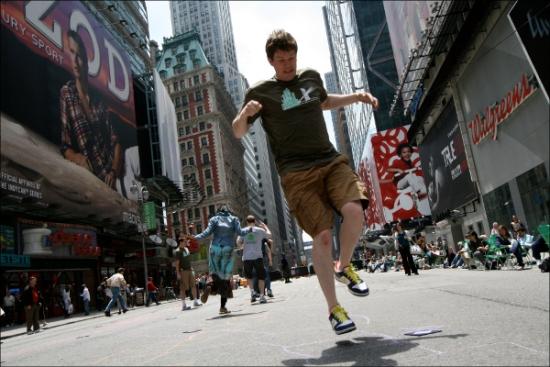
These kinds of games echo the spirit of the Situationist International, which called on artists to create alternate experiences through the construction of situations, psychogeography, and the use of play as a form of critical thinking. Urban games can also remind us of Hakim Bey and his idea of a Temporary Autonomous Zone by using goals, rules, and play with the creation of the ‘magic circle’, a world inside a world, as a method of directing public imagination towards an alternative presence, a way of acting and existing as an independent community within a larger, more repressive reality, even if only momentarily. Urban games also continue the Fluxus idea of the ‘happening’, a participatory media form in which audiences support artists, moving beyond the role of observers of performance to become collaborators in events. With the urban games season about to begin, this review takes a look at how several groups, either consciously or at times not so consciously, have interpreted these traditions for summer 2010.
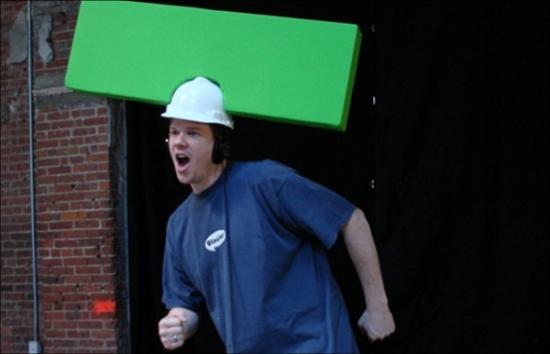
In New York, the much loved Come Out and Play Festival will run from June 4th through June 6th, with events scattered throughout the city borough of Brooklyn. Games include playground mods, GPS exploits, extreme sports, narrative quests, and massively multiplayer scavenger hunts. The festival hosts about forty game designers from around the world and about two thousand people will attend. Executive producer Greg Trefry says COaP strives to be entertaining and is not so much concerned with philosophy as it is with place: “Where the festival is located each year is actually really important to us. We look for interesting parts of the city to experiment on and use as the stage for the festival. So we’ve played everywhere from big anonymous urban areas like Times Square to now more family oriented locales like Park Slope.”
Still, the designers of COaP seem to have a way of engulfing serious issues with comedy and encouraging people reclaim neglected parts of the city by giving them a second look. Along these lines, Atmosphere Industries of Toronto will present Gentrification, a game that picks up on Brooklyn’s ongoing housing conflicts by asking players to assume the roles of real estate developers or neighborhood locals while collecting properties and gentrifying neighborhoods. Meanwhile, Gnarwhal Studios of Baltimore will sponsor ‘Humans vs. Zombies’, a modification of the playground game tag that introduces large groups of strangers to one another by sending players out into the city as the walking dead.. It’s hard to sit in a park, completely shut off from everyone around you, during a two hundred person simulation of a zombie attack. Also part of COaP, New York’s Crux Club will confront community fears of toxic contamination through their game ‘It Lurks in Gowanus’, a hide-and-seek mod that asks participants to track down a creature who has ominously escaped from legendary pollution of the neighborhood’s Gowanus Canal.

Although he agrees that all urban game events take some kind of cue from historical antecedents like the Situationist International or Fluxus, producer Trefry resists making a formal connection between these movements and COaP. Instead, he says, the main concern was and continues to be community building, getting people together in a surprising way and in an unexpected space: “At its heart, the festival is about running around outside and having fun with your friends. It sounds silly, but that’s such an amazing thing to experience.” This goal of community building has caused COaP to inspire other urban games festivals, including the Hide & Seek Festival in London and the igFest in Bristol, and the Steel City Games Fest in Pittsburgh. The organized versus the random, or the juxtaposition of the carefully designed structure of a game with the largely unstructured, seemingly arbitrary activity of ordinary public space continues to be a common interest among COaP design groups, which are likely to include engineers, academics, and urban planners alongside artists and actors.
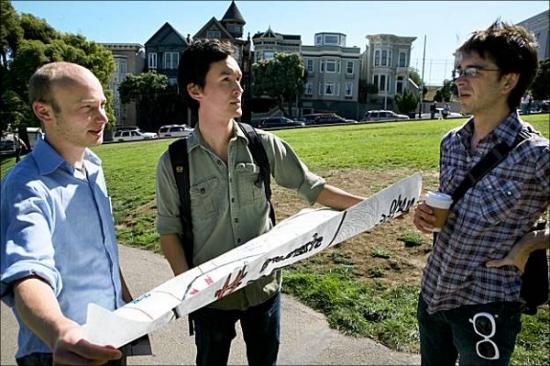
In San Francisco, the artists of SFZero cite Situationism and Fluxus as fundamental to their practice. The SFZero collective was founded by Ian Kizu-Blair, Sam Lavigne, and Sean Mahan in January 2006. Initially, the group used something like a Fluxus process of writing instructions for happening-like events that teams of other players acted out. Soon, these collaborations became the basis for both an online community and real world urban games network that now include over five thousand players. Through the SFZero website, participants initiate events by challenging other participants to ‘Eat a food that frightens you’, or ‘Go to a street corner of your choosing and wait for something fantastic to happen.’ SFZero seems to agree with classic Situationist objectives. A good game shifts awareness, Kizu-Blair says, changing the city for the people who play: ‘Oftentimes the players report that they have a completely different experience of the urban environment as a result of playing and go to places in their city where they have never been before. There is a cinematic quality whereby players live out experiences that normally exist only in spy movies – chases down dark alleys, chance meetings, etc.’ Typical SFZero tasks range from exploring overlooked locations in the city to taking a chance on meeting new people.
As fantastic as some of these instructions sound, and as important as the Internet is to SFZero’s success, Kizu-Blair says it is essential that some productions have a real world component: ‘As people become disenchanted with eight plus hours per day of screen time, they are increasingly gravitating towards hybrid activities that bridge the space between the virtual imaginary and the physical real world. These activities blend the safety and simple pleasure of screens with the risk, tension and excitement of physical interaction. More and more, members of our society will seek to escape from escapism towards an ethics of action, to escape from movies to real experiences. They will find that they have little idea how to have real experiences after their time in the imaginary. SFZero is the transition. ‘SFZero offers both real-world excitement and eternal return to the screen, to re-live, re-experience and re-imagine your engagement with reality.’
Recently, Kizu-Blair, Lavigne, and Mahan have begun staging riskier, more elaborate game events like ‘Journey To the End Of Night’, in which runners try to make it through six checkpoints on foot or by public transportation, while avoiding capture by chasers. An early version of Journey actually opened the 2006 season of Come Out and Play. This July, the veteran SFZero player Lincoln will stage a further production of Journey in Los Angeles.
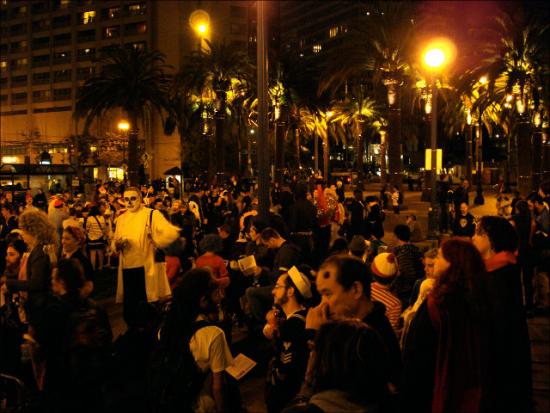
This summer, SFZero will present The Wanderers Union, a game that is loosely based on a French style of self-supported long-distance cycling called randonneuring. To perform Wanderers Union, players get a set amount of time to travel on foot and by public transportation through a series of zones. The idea is to create a single holistic experience of a urban area. The journey intends to juxtapose city spaces in ways that reveal meanings that might otherwise remain unobserved. Players who complete all of the events will progress from an initial four hour wandering to a final twenty-four hour wandering. By using play as a means of gaining understanding, participants will hopefully gain a small degree of mastery over urban space. Kizu-Blair says: ‘It’s like a video game – you level up and gain powers – but you have the added satisfaction of doing something real, and you can include anyone in the experience.’
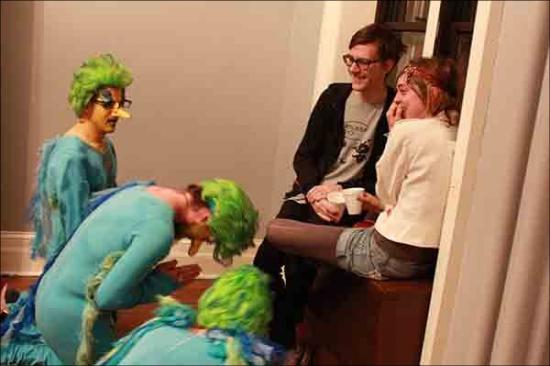
Back on the East coast, the New York based artist’s collective Opt-In found that what started as a thesis project for an experimental film class unexpectedly became a series of multimedia events that now includes filmmakers, fine artists, dancers, performers, and musicians. Titled ‘ZeroDay Exploits’, these evenings are the work of Bryn Jackson, Sarah Lerner, and Nathaniel Barker, who says the group has adapted the Fluxus concept of “happening” to the 21st century: ‘We create immersive environments in which strangers and friends can form new communities around a project, an idea, or a simple good time. We bring people from all walks of life together by promoting open dialogue and the creative expression of public discourse through a vast array of mediums and the use of public space.’
Past themes for the Opt-In exploits have included faith and technology. This July, the group plans to explore the idea of “home” by inviting guest artists and guests to contribute items and materials that evoke a sensation of home. The goal of this event is to create a sense of rootedness in New York, a city of perpetual resettlement. Another major goal for Opt-In is the deconstruction of the digital experience through live performance. According to Barker: ‘Our focus has always been on participation, so our events offer multiple means for encouraging visitors to get their hands dirty including music, secret actors to stimulate conversation, inclusive performances, and free art materials for spontaneous art creation.’

Also related to Fluxus, but in a gesture that seems more directed towards the Brazilian director Augusto Boal, a group calling themselves Invisible Playground Berlin, uses the urban game as a kind of political visualization. Founded by the artist known as Sebastian Quack Sebastian, this group’s interests lie at the intersection of theater and digital gaming. In ‘F Be I, See I A’, Invisible Playground re-enacted peer-to-peer communication as a giant game of urban capture the flag. Later, in Space Station Escape, the group simulated the release of an alien virus inside a phantom space station supposedly docked underground beneath Alexanderplatz.
Sebastian views missions and rule sets as ‘experience systems’, Games are a kind of participatory appropriation, an interrogative code that is placed over or enacted within an existing urban mechanism. In other words, if you want to get people to think more critically about the way immigration works in your city, you’d design a game that plays with the existing locations, activities, and mechanisms of immigration. In this way, Invisible Playground intends to put forward what otherwise goes unnoticed, tolerated, or is even passively accepted. Sebastian is careful to structure his rule sets in ways that highlight the power structures that arise between groups of players, between players and their environments, or between players and organizers. According to the Schwellenland site: ‘Players must work together and against each other. Over SMS and email you are guided to appointments and arrive at places where you were barred from entry until now. The game asks you to decipher who is legal, who is questionable, who can be trusted, who will trust you, who observes you, what should be ignored, what is critical. You are accompanied by a coach and by referees who left the usual national borders behind long ago and are now in Vienna as refugees without papers. These specialists can help you to master the challenges of being from a developing country. But they have also power to turn on you if you make too many errors.’

Finally, with a practice based in both New York and in Brazil, Adriana Varella is one of the artists behind the AnarkoArtLab, a collective of new-media, visual, dancers and genre benders in residence at the Living Theatre. Each month, Anarko creates a multimedia event that runs as part lab, part performance. This summer, the group plans to become mobile and to bring the Lab to different situations and neighborhoods. ‘We are searching,’ Varella says ‘for a last trace of that most ephemeral and elusive state where only a dusty dystopian haunting may yet remain. ‘Of course,’ Varella says, ‘all of them, Dada, the Situationists, Fluxus they are all our ancestors.’
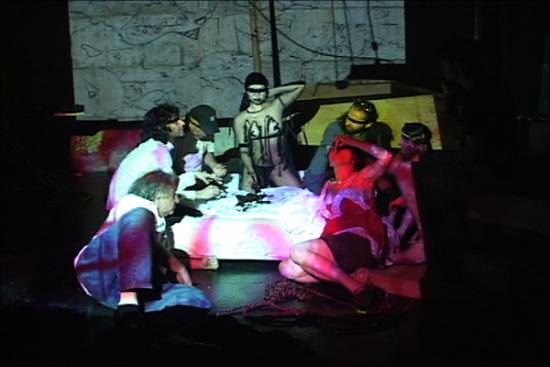
Press Release for print (pdf 1.6 Mb)
This Summer you are invited to gather your friends, give us a call and drop by to HTTP where you can browse, borrow and organise books and journals from ThE DiStRiBuTeD LiBrArY whilst savouring delicious Iranian sweets and a cup of El Salvadorian coffee brought to us by Feral Trade.
We’d also like visitors of all backgrounds and experiences to suggest, demonstrate and implement their ideas for displaying, categorising and borrowing books from the library in the hope that by the end of the Summer we’ll have an expanded philosophy of knowledge sharing. All participants’ contributions will be documented and made accessible online, as well as in the space for others to observe. For more information about this please email info@http.uk.net
The ThE DiStRiBuTeD LiBrArY also provides the context for an informal season of associated events including meetings of other distributed librarians and introductions to semantic web by experienced categorizors of networked digital data.
The first of these events is ’48 hour wake’ which begins at 12 midnight Friday 21st July ending at Midnight Sunday 23rd July.
The 48 hour wake with David Goldenberg and guests, uses participatory practices to examine how it is possible to disengage from the principle model of Euro centric Modern art tradition, including any mindset that one inherits before going onto develop new ways of thinking, and from there new ways of acting.
This event will be webcast for simultaneous viewing at East Open International and provides the opportunity for a wide range of persons to take part IP.
HTTP has free wireless access to the Internet so bring your laptops.
Feral Trade
Feral Trade is an initiative to develop new trade relations along social networks. Whilst never actually calling itself art, this project reveals the social-context, texture and aesthetics of this venture in ‘new international trade relations’, with coffee and sweets as its medium.
The use of the word ‘feral’ denotes a process which is wilfully wild (as in pigeon) as opposed to romantically or nature-wild (wolf). The passage of goods can open up wormholes between diverse social settings, routes along which other information, techniques or individuals can potentially travel.
Ruth Catlow’s review of Feral Trade Coffee.
ThE DiStRiBuTeD LiBrArY provides a resource for creative research that encourages a re-evaluation of where one stands in the world beyond the established canons, structures, processes and mediation.
Expect to find amongst the 250 books, fact, fiction and theory surrounding Net Art, New Media, Activism, Art & Technology, Wireless technology, Locative Media, Critical Thinking, Anarchism, Feminism, Marxism, Cyber culture and theory, Programming, Psychology, Complexity Theory, Pirate Broadcasting, Politics, Philosophy, Post-modernism, Gay and Lesbian writings, Underground Film and more.
Ron Briefel, an active Situationist, has distributed is personal library among a number of venues, people’s private homes, community centres, squats and galleries for public reading and lending.
HTTP also welcomes a recent loan of historic DIY journals and zines from the 90s from Media Arts Projects.
MAP’s most recent projects have been a series of workshops and events that emphasise skill-sharing, promoting the visibility of non-commercial uses of new technologies, and building local networks.
Physical Folksonomy
Whilst recent technological developments in semantic web and folksonomy allow digital files to appear in more than one category at once, the books in ThE DiStRiBuTeD LiBrArY exist in physical space. Develop a ‘Couple’s Catalogue’ to represent a mutual understanding or perhaps a a group of three would create a ‘Tripart Taxonomy’. Any structural additions to the fabric of the building to accommodate a reflection of your thinking will be considered. We hope to develop a range of strategies of specific relevance and use for the individuals and groups who visit HTTP.
References for Physical Folksonomy at HTTP:
The Faculty of Taxonomy at the University of Openness Ontology is Overrated: Categories, Links, and Tags by Clay Shirky.
David Goldenberg and guests will take part in a continous 48 hour wake at HTTP gallery. During this time they will stay awake while on-site inside HTTP gallery to dream, relax, take part in discussions and share ideas with a community who enter into the project.
The 48 hour wake examines how it is possible to disengage from any mindset that one inherits before going onto develop new ways of thinking, and from there, new ways of acting. The event is to be web cast so that it will be seen simultaneously at a venue in Norwich gallery as part of the East Open International – along with facilities that will allow the opportunity for a wide range of persons to take part in the discussions via Voice-Over IP.
The project develops a work staged last year for the STRUKTUR show at artist: network in New York.